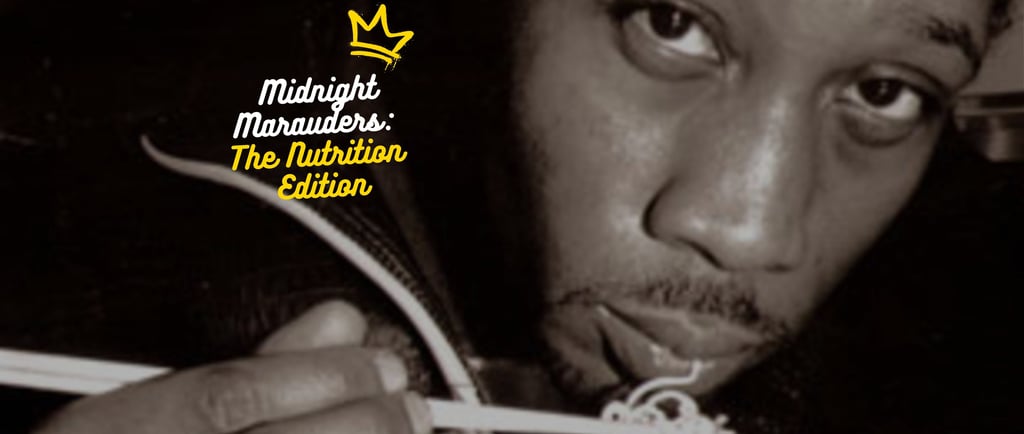Midnight Marauders: The Nutrition Edition
Late nights don’t have to mean poor nutrition. Meal Timing and Metabolism for Nightlife Enthusiasts explores how DJs, performers, and night owls can fuel their bodies for energy, recovery, and long-term health. Learn how to align your meals with your schedule, avoid common nutrition traps, and time your food to support metabolism—even when your “day” starts after dark.
NUTRITIONMETABOLISMSLEEP
dj miss kittie
5/14/20252 min read


Meal Timing and Metabolism for Nightlife Enthusiasts
For nightlife enthusiasts, such as DJs, performers, and clubgoers, the unconventional hours can make it challenging to maintain healthy eating habits. Late nights, irregular schedules, and post-event cravings often lead to poor food choices that can impact energy levels, metabolism, and overall health. Understanding the role of meal timing and how to adapt it to your lifestyle can help you optimize your metabolism while thriving in the nightlife scene.
Why Meal Timing Matters
Meal timing refers to the strategic scheduling of meals to align with your body’s natural rhythms, known as the circadian rhythm. Your body processes food differently depending on the time of day, with metabolism generally being more efficient earlier in the day.
For nightlife enthusiasts who are active during unconventional hours, traditional meal timing strategies may not apply. Adjusting your eating schedule to suit your unique routine can help:
Maintain steady energy levels during late-night activities.
Prevent overeating or unhealthy snacking.
Support metabolic health and digestion.
Optimize recovery and sleep quality.
Meal Timing Strategies for Nightlife Enthusiasts
1. Start the Day with a Balanced Meal
Even if your “day” starts later than usual, ensure your first meal includes a balance of protein, healthy fats, and complex carbohydrates. This sets the tone for steady energy levels and helps curb cravings later.
Example: Scrambled eggs with avocado and whole-grain toast or a smoothie with protein powder, almond butter, and fruit.
2. Fuel Up Before Your Night Begins
Eat a nutrient-dense meal 2-3 hours before your nighttime activities. This provides sustained energy and prevents hunger during the event.
Example: Grilled chicken or tofu with quinoa and roasted vegetables.
3. Plan for Healthy Late-Night Options
If you’re performing or socializing late into the night, have healthy snacks or light meals available to prevent reaching for fast food or processed snacks.
Examples: Greek yogurt with berries, a handful of mixed nuts, or a whole-grain turkey wrap.
4. Time Your Post-Night Meal Wisely
After a late night, aim for a light, protein-rich meal to support muscle repair and recovery without overloading your digestive system.
Example: A small salad with grilled chicken or a protein shake with almond milk and spinach.
5. Avoid Eating Right Before Bed
Eating heavy meals too close to bedtime can disrupt sleep quality by increasing body temperature and causing indigestion. Aim to finish eating at least 1-2 hours before you plan to sleep.
6. Stay Hydrated
Dehydration is common in nightlife settings, especially when alcohol is involved. Prioritize water intake throughout the night and avoid sugary or caffeinated drinks close to bedtime.
7. Consider Fasting Windows
Intermittent fasting (e.g., eating within an 8-10 hour window) can help regulate metabolism and digestion. Adjust your fasting window to align with your active and rest periods.
Conclusion
Meal timing and smart food choices are essential for maintaining energy, metabolism, and health as a nightlife enthusiast. By aligning your eating habits with your unique schedule and prioritizing nutrient-dense foods, you can thrive in the nightlife scene without sacrificing your well-being. Small adjustments to when and what you eat can make a big difference in your energy, performance, and overall health.
